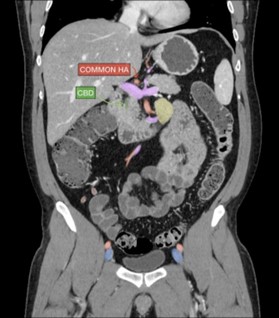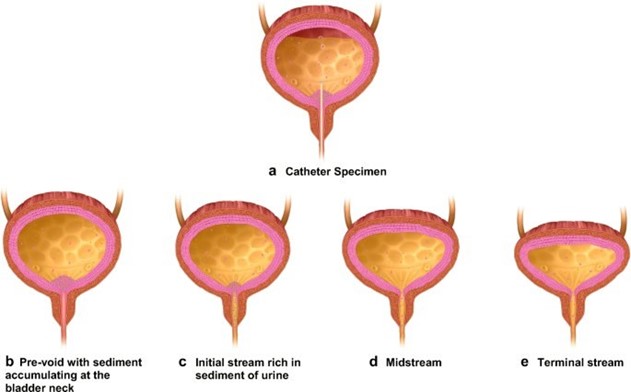A 68-year-old female client is being seen for follow-up wound care on her right lower leg. During her visit, the client states she hasn't had a bowel movement since her last visit a week ago. The client states she hasn't had much of an appetite in the past few days and says, "l figure I don't have anything in there to come out." The nurse auscultates the client's abdomen and hears hyperactive high-pitched bowel sounds in the upper left quadrant and hypoactive bowel sounds in the lower left quadrant. The nurse collaborates with the primary health care provider and the client is directly admitted to the hospital for possible intestinal obstruction. Before going to the hospital, the client asks the nurse what to expect. Which of these statements by the nurse (is) most likely accurate?
Select all that apply.
You should drink lots of water to help move the stool out of your body.
Surgery will be necessary to remove any Obstruction.
A nasogastric (NG) tube will be placed to relieve distention.
An abdominal CT will determine if you have an intestinal obstruction.
Correct Answer : C,D
Option A is not the best advice because drinking lots of water alone may not be enough to relieve constipation, especially if there is an obstruction.
Option B is also not accurate because not all intestinal obstructions require surgery, and the treatment approach will depend on the cause and severity of the obstruction.
Option C is accurate because a nasogastric tube can help relieve any distention caused by the obstruction by removing any gas or fluids that may have accumulated in the stomach and small intestine.
Option D is also accurate because an abdominal CT is one of the diagnostic tests that can help confirm the presence of intestinal obstruction and provide information about the location and cause of the obstruction.

Nursing Test Bank
Naxlex Comprehensive Predictor Exams
Related Questions
Correct Answer is B
Explanation
This is because the persistent dysuria suggests that the initial treatment was not effective, and there may be a possibility of a resistant organism. Obtaining a midstream urine specimen for culture and sensitivity testing will help identify the specific microorganism causing the infection and determine the most effective antibiotic to use. The nurse should also instruct the patient to continue to drink plenty of fluids, as this will help flush out the bacteria and relieve symptoms. The nurse may suggest the use of acetaminophen (Tylenol) to relieve discomfort, but this should not be the only action taken, as treating the underlying infection is crucial. The nurse should not tell the patient to take trimethoprim and sulfamethoxazole for an additional three days, as the initial treatment was not effective, and a different course of treatment may be required based on the results of the urine culture and sensitivity testing.

Correct Answer is ["D","F","G"]
Explanation
Option A is incorrect because administering an ACE inhibitor may be a part of the patient's regular medication regimen, but it is not specific to preventing complications of diabetes mellitus while in the hospital.
Option b is incorrect because administering intravenous fluids at a high rate may result in fluid overload, electrolyte imbalances, and other complications, which may not be appropriate for this patient.
Option c is incorrect because administering glucagon is not a preventative measure, but rather an intervention for treating hypoglycemia.
Option d is correct because ensuring a well-lit path to the bathroom is important for fall prevention, but it does not directly address the prevention of complications of diabetes mellitus.
Option e is incorrect because encouraging the client to drink sugar-free liquids is a general recommendation for maintaining hydration and may not be specific to preventing complications of diabetes mellitus.
Option f is correct because teaching the client to rise slowly from the bed is important for preventing orthostatic hypotension, but it does not directly address the prevention of complications of diabetes mellitus.
Option g is correct because Patients with diabetes mellitus are at risk for hypoglycemia when taking insulin or oral hypoglycemic agents. Proper coordination of meal-time insulin with food delivery and consumption can help prevent hypoglycemia or hyperglycemia. This includes ensuring that the patient receives insulin at the appropriate time in relation to meals and monitoring blood glucose levels regularly.
Whether you are a student looking to ace your exams or a practicing nurse seeking to enhance your expertise , our nursing education contents will empower you with the confidence and competence to make a difference in the lives of patients and become a respected leader in the healthcare field.
Visit Naxlex, invest in your future and unlock endless possibilities with our unparalleled nursing education contents today
Report Wrong Answer on the Current Question
Do you disagree with the answer? If yes, what is your expected answer? Explain.
Kindly be descriptive with the issue you are facing.
